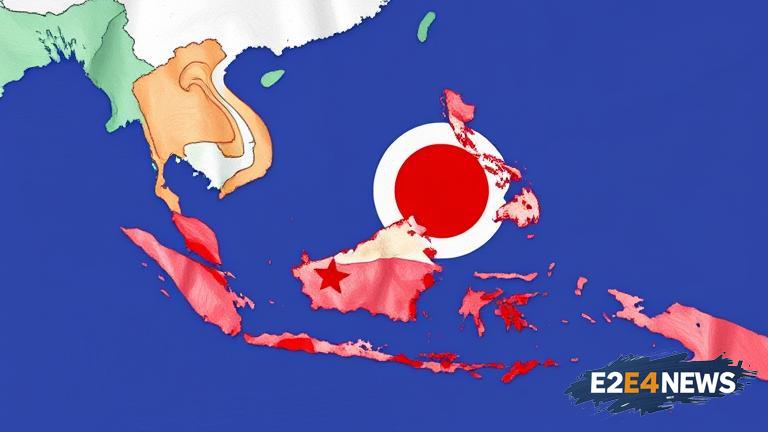In a significant move, Japan has announced its decision to adopt a multi-layered approach to regional security, with a focus on ASEAN-led initiatives. This shift in strategy is aimed at enhancing Japan’s ties with Southeast Asian nations and promoting a more collaborative and cooperative regional security framework. The new approach is expected to strengthen Japan’s relationships with ASEAN member states, while also promoting a more inclusive and comprehensive regional security architecture. Japan’s decision to adopt a multi-layered approach is seen as a response to the evolving regional security landscape, which is characterized by rising tensions and competing interests. The ASEAN-led framework is expected to provide a more effective and sustainable platform for regional security cooperation, with a focus on promoting dialogue, cooperation, and mutual understanding. Japan’s move is also seen as a bid to counterbalance the growing influence of other major powers in the region, while also promoting its own interests and values. The multi-layered approach is expected to involve a range of initiatives, including enhanced cooperation on maritime security, counter-terrorism, and non-proliferation. Japan is also expected to strengthen its engagement with ASEAN-led mechanisms, such as the ASEAN Regional Forum and the East Asia Summit. The new approach is likely to have significant implications for regional security, with potential benefits including enhanced cooperation, improved trust, and a more stable and secure regional environment. However, challenges and risks also exist, including the potential for competing interests and agendas, as well as the need for effective implementation and coordination. Japan’s decision to adopt a multi-layered approach to regional security is seen as a positive development, with the potential to promote greater cooperation and stability in the region. The move is also expected to have significant implications for Japan’s relationships with other major powers, including the United States and China. As Japan continues to navigate the complex and evolving regional security landscape, its decision to adopt a multi-layered approach is likely to be closely watched by regional and global stakeholders. The success of Japan’s new approach will depend on a range of factors, including its ability to build trust and cooperation with ASEAN member states, as well as its capacity to balance competing interests and agendas. Overall, Japan’s shift to a multi-layered ASEAN-led regional security framework is a significant development, with the potential to promote greater cooperation, stability, and security in the region. The move is expected to have far-reaching implications, both for Japan and for the broader regional security landscape. As the region continues to evolve and change, Japan’s decision to adopt a multi-layered approach is likely to be seen as a key factor in shaping the future of regional security. With its focus on ASEAN-led initiatives and cooperative security, Japan’s new approach is expected to promote a more inclusive and comprehensive regional security architecture, with benefits for all stakeholders. Japan’s move is also seen as a bid to promote its own interests and values, while also contributing to regional stability and security. The multi-layered approach is expected to involve a range of initiatives, including enhanced cooperation on maritime security, counter-terrorism, and non-proliferation, as well as strengthened engagement with ASEAN-led mechanisms.
